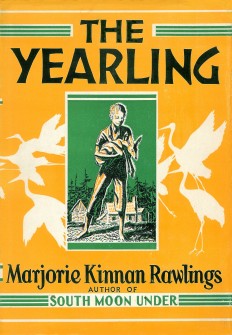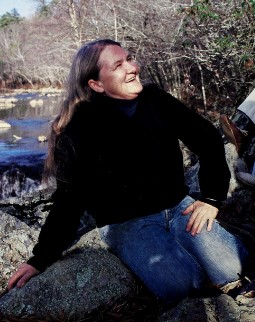
The Thirteenth Amendment to the United States Constitution abolished slavery and involuntary servitude, except as punishment for a crime. The amendment was passed by the Senate on April 8, 1864, by the House of Representatives on January 31, 1865, and ratified by the required 27 of the then 36 states on December 6, 1865, and proclaimed on December 18. It was the first of the three Reconstruction Amendments adopted following the American Civil War.

John Doe (male) and Jane Doe (female) are multiple-use placeholder names that are used in the British and US-American legal system and aside generally in the United Kingdom and the United States when the true name of a person is unknown or is being intentionally concealed. In the context of law enforcement in the United States, such names are often used to refer to a corpse whose identity is unknown or cannot be confirmed. These names are also often used to refer to a hypothetical "everyman" in other contexts, like John Q. Public or "Joe Public". There are many variants to the above names, including John/Jane Roe, John/Jane Smith, John/Jane Bloggs, and Johnie/Janie Doe or just Baby Doe for children. A. N. Other is also a placeholder name, mainly used in the United Kingdom — which is gender neutral — along side Joe / Jo Bloggs and the now occasional use of the "John" and "Jane Doe" names.

Ernest Thompson Seton was a Canadian and American author, wildlife artist, founder of the Woodcraft Indians in 1902, and one of the founding pioneers of the Boy Scouts of America (BSA) in 1910.

Cherokee spiritual beliefs are held in common among the Cherokee people – Native American peoples who are Indigenous to the Southeastern Woodlands, and today live primarily in communities in North Carolina, and Oklahoma. Some of the beliefs, and the stories and songs in which they have been preserved, exist in slightly different forms in the different communities in which they have been preserved. But for the most part, they still form a unified system of theology.

An animal control service or animal control agency is an entity charged with responding to requests for help with animals, including wild animals, dangerous animals, and animals in distress. An individual who works for such an entity was once known as a dog catcher, but is generally now called an animal control officer, and may be an employee or a contractor – commonly employed by a municipality, county, shire, or other subnational government area.

Leland Stanford "Larry" MacPhail Sr. was an American lawyer and an executive in Major League Baseball. He served as a high-ranking executive, including club president and general manager, with the Cincinnati Reds, Brooklyn Dodgers and New York Yankees, and was a one-third owner of the Yankees from 1945 through 1947. MacPhail's sons and grandsons were also sports executives. He was inducted into the National Baseball Hall of Fame in 1978.

The Price-Anderson Nuclear Industries Indemnity Act is a United States federal law, first passed in 1957 and since renewed several times, which governs liability-related issues for all non-military nuclear facilities constructed in the United States before 2026. The main purpose of the Act is to partially compensate the nuclear industry against liability claims arising from nuclear incidents while still ensuring compensation coverage for the general public. The Act establishes a no fault insurance-type system in which the first approximately $15 billion is industry-funded as described in the Act. Any claims above the $15 billion would be covered by a Congressional mandate to retroactively increase nuclear utility liability or would be covered by the federal government. At the time of the Act's passing, it was considered necessary as an incentive for the private production of nuclear power — this was because electric utilities viewed the available liability coverage as inadequate.

Plyler v. Doe, 457 U.S. 202 (1982), was a landmark decision in which the Supreme Court of the United States struck down both a state statute denying funding for education of undocumented immigrant children in the United States and an independent school district's attempt to charge an annual $1,000 tuition fee for each student to compensate for lost state funding. The Court found that any state restriction imposed on the rights afforded to children based on their immigration status must be examined under a rational basis standard to determine whether it furthers a substantial government interest.

The Yearling is a novel by American writer Marjorie Kinnan Rawlings, published in March 1938. It was the main selection of the Book of the Month Club in April 1938. It won the 1939 Pulitzer Prize for the Novel.
A private prosecution is a criminal proceeding initiated by an individual private citizen or private organisation instead of by a public prosecutor who represents the state. Private prosecutions are allowed in many jurisdictions under common law, but have become less frequent in modern times as most prosecutions are now handled by professional public prosecutors instead of private individuals who retain barristers.
Roger Andrew Caras was an American naturalist, animal welfare activist, wildlife photographer and writer.

Jenna Marshall is a fictional character created by I. Marlene King for the Freeform television series Pretty Little Liars and portrayed by Tammin Sursok. The character is based on Jenna Cavanaugh, who was created by Sara Shepard in the book series. Although in the novels Jenna is murdered in Heartless, in the show she is still alive. Jenna is a major recurring character in the first five seasons, acting as a member of the A-Team, while being absent for the sixth, and returning in the seventh, working as a helper to Uber A.

Masanori Hata was a Japanese zoologist, essayist, and filmmaker. A popular essayist under the pen name Mutsugorō, he was awarded the Kikuchi Kan Prize for his writing in 1977. He was perhaps best known in the West as the director and screenwriter of the 1986 film The Adventures of Milo and Otis.

The Phoenix is a British weekly story comic for children aged 7– 14, published by David Fickling Comics Ltd. The comic was launched on 7 January 2012 with a preview issue which was released in late 2011. The comic is often considered a successor to The DFC: both are published by the same people and many of The Phoenix's creators had worked on The DFC.
Marnie McPhail-Diamond is an American-born Canadian actress and musician. She began her career starring as Annie Edison in the CBC Television children's series The Edison Twins (1984–1986). She later moved to United States for starring in the daytime soap operas Generations and Days of Our Lives, guest-starred in a number of prime time series, made-for-television movies and feature films most notable playing Lieutenant Eiger in Star Trek: First Contact (1996). She later starred in the Canadian legal drama The Associates (2001–02) and the animated sitcoms Braceface (2001–04) and JoJo's Circus (2003–06).
The Redhead murders is the media epithet used to refer to a series of unsolved homicides of redheaded females in the United States between October 1978 and 1992, believed to have been committed by an unidentified male serial killer. The murders believed to be related have occurred in states including Tennessee, Arkansas, Kentucky, Mississippi, Pennsylvania, and West Virginia. The murders may have continued until 1992. The victims, many remaining unidentified for years, were usually women with reddish hair, whose bodies were abandoned along major highways in the United States. Officials believe that the women were likely hitchhiking or may have engaged in prostitution.

Kára McCullough Temple is an American beauty pageant titleholder who was crowned Miss USA 2017. As Miss USA, McCullough represented the United States at Miss Universe 2017, where she placed in the Top 10.
International Rights Advocates, Inc. filed an injunctive relief and damages class-action lawsuit against Apple, Microsoft, Dell, and Tesla in December 2019. The plaintiff was representing fourteen Congolese parents and children seeking relief and damage fees for these companies aiding and abetting the use of young children in the Democratic Republic of Congo (DRC) cobalt mining industry. The plaintiff also pursued relief on the common law basis of negligent supervision, enrichment, and intentional infliction of emotional distress. In November 2021, a federal judge dismissed the suit, ruling, among other things, that there was no causal relationship between the companies and the individuals' injuries. In March 2024, the Court of Appeals for the District of Columbia Circuit ruled that the plaintiffs had standing for the damages claims, but affirmed the dismissal because of failure to state a claim.
Jenna Kanell is an American actress, director, writer and stunt performer. She gained recognition for her portrayals of Tara Heyes in Terrifier (2016) and Kim Hines in The Bye Bye Man (2017)—both horror films in which she performed her own stunt work. Her film career has since expanded to a variety of genres such as the political drama The Front Runner (2018), the horror-comedy Renfield (2023), and the action comedy Bad Boys: Ride or Die (2024).

Margaret Nygard was a British-American environmentalist and conservationist. Born in British India to a civil servant, she was educated in both India and Britain. During the 1940 and 1941 bombing campaign against Britain, her school was relocated to British Columbia, Canada. Nygard studied English at the University of British Columbia and after her graduation in 1944 briefly became a teacher at the university. She went on to earn a master's degree and a PhD from the University of California, Berkeley. In 1962, she and her family moved to Durham, North Carolina, and became aware of environmental threats to the Eno River. She founded the Eno River Association in 1965, becoming its first president. She naturalised as a United States citizen in 1993.














